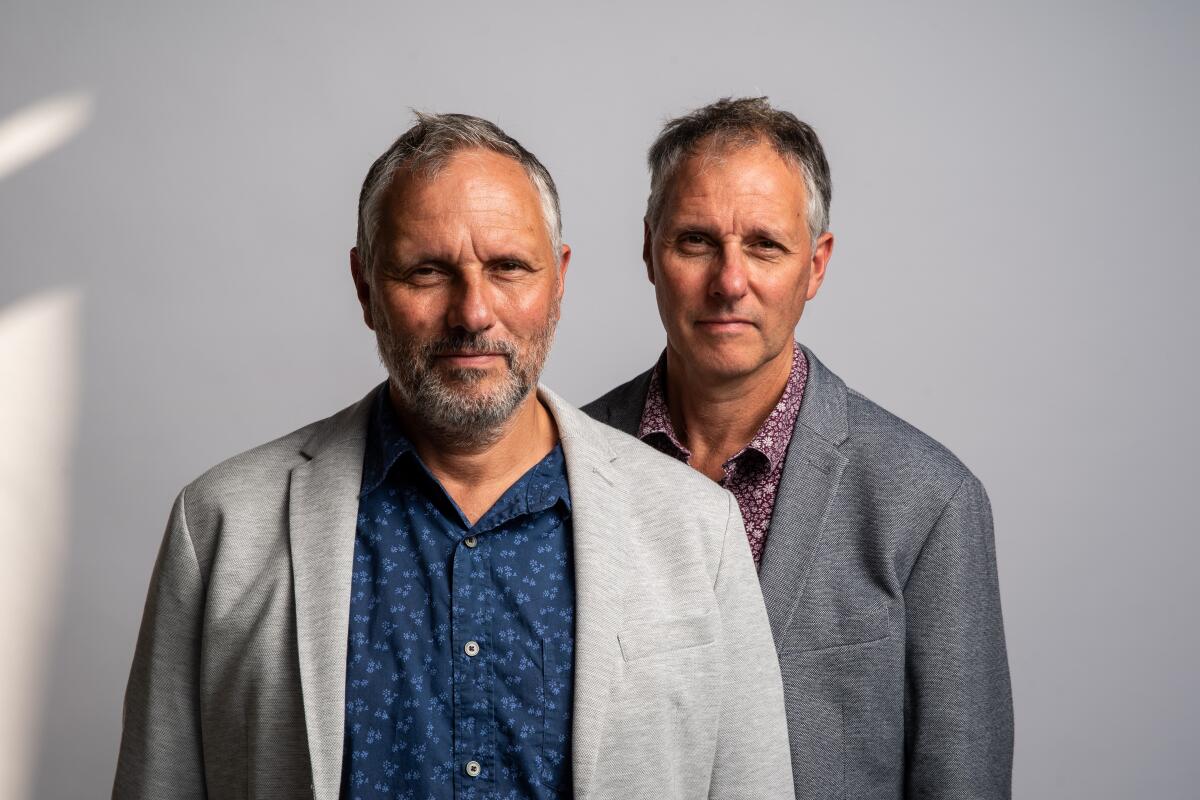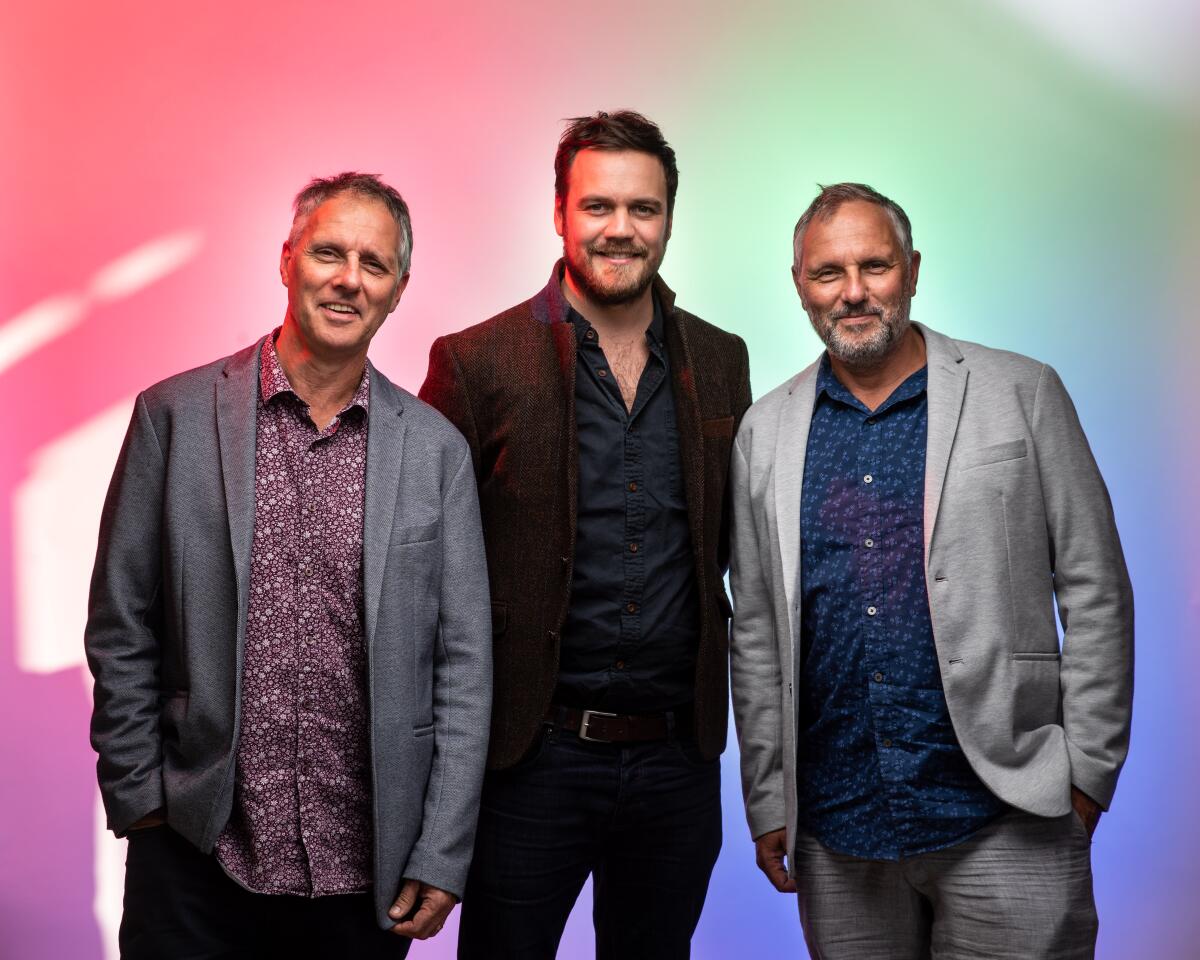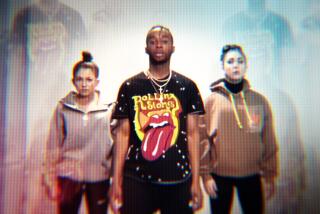Why twin brothers revealed secret child abuse on-camera in Netflix’s ‘Tell Me Who I Am’

“Are you willing to tell me what happened to you in your childhood?”
All grew silent as the director’s question hung in the air. Marcus Lewis had not expected to be asked this — asked to reveal memories so tightly-held he had never uttered them aloud.
It was the fifth day of shooting on “Tell Me Who I Am,” a documentary Marcus and his identical twin brother, Alex, had reluctantly agreed to participate in. It wasn’t that the siblings didn’t like the filmmaker, Ed Perkins. In fact, they’d grown surprisingly close to him in the six years since Perkins had approached them about turning their story into a feature film.
As they met with the director over the years — growing to trust him at various English pubs — they were even simultaneously becoming more comfortable sharing their journey with the public. They wrote a book about their life, promoting it during brief segments on breakfast TV.
Their story captivated the U.K., becoming a Sunday Times bestseller. It began when the twins were 18, and Alex was in a terrible motorcycle accident. After emerging from a coma, he awoke in his hospital bed with no memory of anything that had come before. The only person he recognized was his twin. And so Marcus took on the job of becoming Alex’s guide, filling out his identity.
Their upbringing, Marcus said, had been idyllic. They were well-off, living in a large home frequented by members of high society and enjoying extravagant family vacations. They had loving parents.
This was the reality Alex knew until, when he was 32, his mother died.
As he and Marcus cleaned out her house, they stumbled across a cabinet filled with sex toys. Alex could have brushed that aside, maybe, but then there was the locked dresser. Inside, protected by a key, was a photograph of Marcus and Alex as boys. Their heads had been cut off with scissors, and they were naked.
Alex became frantic. He looked at his brother and asked: “Were we abused as children?”
“Yes,” Marcus replied. And he said no more.
Alex was livid. As he tried to recalibrate his image of himself, he pressed his brother for more details, asking him how he could have possibly kept something so vital from him. The memories, Marcus said, were simply too painful. Rewriting history for Alex allowed him to rewrite history for himself.
For two weeks, Alex was consumed with anger. But he slowly began to understand his brother’s perspective, and the twins moved on, close as ever.
So here they were, age 54, facing the prospect of the entire world knowing their story through a Netflix documentary. The idea of sitting for days of interviews — just their two faces filling the screen — was petrifying to the Lewises. They pulled out of the project numerous times, regretfully telling Perkins they just didn’t think they could go through with it. Every time, the director was so understanding — “no problem, go home, we can cancel the entire thing” — that his attitude actually convinced the brothers to stick with the film.
This was the same approach Perkins took when, on day five, he finally asked Marcus to reveal the details of the twins’ child abuse.
“Well, why? Why do you want to know that?” Marcus said he asked the director. He was sitting in West Hollywood with his brother last week — a few days before the film’s Oct. 18 streaming debut — stirring milk into his tea with his eyeglass temples. The twins, who make their living mainly from a luxury hotel they opened in Zanzibar, have homes roughly an hour away from each other in Great Britain.
For four minutes, I talked without a cut. And then I stopped and I put it straight back in the box again. And I’ve never done it again. It was a one-off.
— Marcus Lewis, on the decision to speak about his childhood abuse
Marcus continued to describe the tense moment with the filmmaker. For 20 minutes, he said, he and Perkins went back and forth. Why should he talk about the horrific things that had happened to him and Alex as a boy? For the movie? So it would have a good ending?
No, Perkins insisted. The film didn’t matter. But they were at that point in the story. And if Marcus wanted to share, he was willing to listen.
“Marcus said, ‘That’s not a good enough answer. That’s not going to make me speak,’” recalled Perkins, 33, who had a short film nominated for an Academy Award earlier this year. “He wanted me to give him a reason, and I didn’t.”
“I wanted him to take responsibility, and he refused to do that,” Marcus agreed. “He put it back on me so it was completely and utterly my choice. ... And in the end, I just said, ‘[screw] it. Fine. You know what? I’m just going to tell you.’ It just came from nowhere. For four minutes, I talked without a cut. And then I stopped and I put it straight back in the box again. And I’ve never done it again. It was a one-off.”

Heading into filming, Perkins had consulted with various therapists who had experience with survivors of child abuse. He wanted to know how a psychologist would guide the twins through the process so he felt he could properly navigate them through filming, without flashbacks or retraumatization. He also made professionals available to the brothers during the shoot, though the siblings opted not to speak with them.
After his accident, Alex had spent a lot of time in therapy. But Marcus never did.
“Marcus has withheld this entire story himself. He’s buried this entire thing,” Alex said. “He’s put everything in Pandora’s box, never reached out to anyone for any help and never had any therapy. When I realized the enormity of what he’d taken and what he did — people say ‘Are you angry with your brother?’ Why? He did all that for me. I’m in awe of what he’s done.”
But that’s how Alex feels today, now that he knows the full extent of what he suffered as a boy. While sitting with Perkins during filming, he revealed just how important it was to learn the details of the abuse. Over two decades, it was a need he had been unable to fully vocalize. But Perkins picked up on it, and so after Marcus’ four-minute confession, he asked if Marcus would be willing to share the same story with Alex, face-to-face.
Marcus said he didn’t think he could. So Perkins suggested showing Alex the digital footage of Marcus telling the story. The filmmaker had cut three versions, Marcus said: “An edited, really watered-down version. A medium version. And whole monologue uncut, as it is.”
Marcus watched all three, ultimately deciding he was OK with showing his brother the rawest edition. He left the room, watching through a window as Alex viewed the footage. In the clip, Marcus described how his mother sexually abused them both when they were boys, subsequently passing them around separately to her male friends on overnight visits.
Though he began to cry, Alex said he had actually feared the details would be even worse.
“I had built a monster up in my head with tons of scenarios of what actually happened,” he said. “He almost made it smaller, because I had it so big ... I just wanted it to come from his lips to me what happened, and then I could park it. ‘That’s where we are. That’s the truth. We’re done.’”
When the clip was done playing, Marcus returned to the room, sitting across a table from Alex. The two embraced, and Marcus said he felt an electric bolt through his body. The brothers had regained their twin connection.
“Our twin connection — only identical twins know it and only identical twins have it,” Marcus said. “It’s an unexplained connection that science can’t really get. Just like a little extra layer on top that only identical twins have. Not even normal twins have it. I had 99% of my brother, but I didn’t have 100.”
“I wanted that — I wanted it back,” Alex said.
“And we’re better now than ever,” Marcus said. “We’ve got that little extra bit back.”
After the shoot wrapped, Marcus joked to Perkins that he needed an address to send the “100,000-pound invoice for the therapy session” to. His defense mechanism is so strong, Alex explained, that Perkins was the only person who’d ever gotten inside his head — and that was only for four minutes.
Marcus even blacked out the confession. Later that night, at a pub, he told Alex he couldn’t remember what he said. “Are we done now?” Marcus asked. Alex said they were, and they haven’t spoken about the abuse further. That’s probably why it took the twins about 10 viewings of “Tell Me Who I Am” to feel comfortable with it.
To have an ending where we can get on with our lives, that’s a gift.
— Alex Lewis
They’re proud of it now. They see it as a love story between brothers — not a movie about child abuse like the Michael Jackson docu-series “Leaving Neverland,” Alex said.
“In everything they do, they steadfastly refuse to be victims,” Perkins said. “I think it’s amazing that this has not destroyed their lives. They live full, well-rounded and successful lives despite what they’ve gone through. And so even though the film inevitably goes to dark and complex places, we really hope that audiences are left with a feeling of hope.”
The twins, who are each married with two kids, say the film has positively affected their family lives. Alex has stopped having probing conversations with his wife, crying in front of his children.
“Marcus is free. He’s lighter. And I’ve got my jigsaw puzzle — the last piece I needed,” he said. “To have an ending where we can get on with our lives, that’s a gift. And people have come and told us and hugged us and said they’ve never told anyone about their abuse. A lot of men coming and telling us. What we didn’t see was the gift we were going to give to other people.”
More to Read
Only good movies
Get the Indie Focus newsletter, Mark Olsen's weekly guide to the world of cinema.
You may occasionally receive promotional content from the Los Angeles Times.











